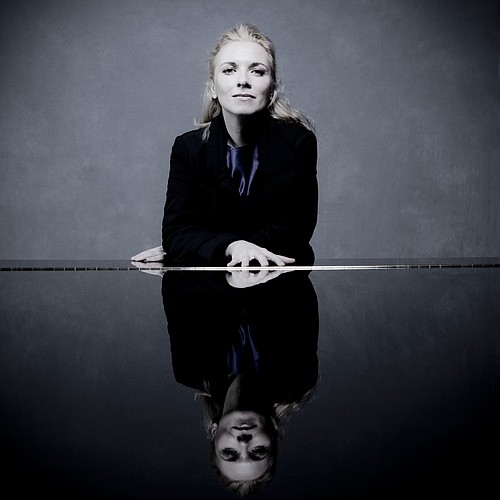- April 24, 2024
-
-
Loading

Loading

Every now and then we attend a concert that, like a perfect storm, all comes together to make perfectly glorious music. That happened this past weekend when the Sarasota Orchestra and Music Director Anu Tali offered a program of particularly disparate works by extremely contrasting composers and came out with a confluence of sounds that made us weep.
Richard Strauss’ intense “Death and Transfiguration” is rarely, if ever, heard as a curtain opener but Tali used it well, carefully building colors and textures in her orchestra so the musicians produced an organ-like sound with a depth of understanding that comes from both the heart and technical prowess. The opening of this work isn’t easy to understand. One friend said, “You have to be older to appreciate that opening,” and that made me realize why the first themes made me so uncomfortable: they deal with the concept of death and the fear of dying. But the transfiguration that comes after that is so uplifting, so spiritual, it’s hard not to believe things get better. With its “Superman” sound-alike theme, when played well, it’s almost impossible not to soar with it and the Sarasota Orchestra, sounding like a giant organ with shimmer and depth, spun legatos that seemed to go on forever.
One of the most important marks of a great orchestra is its ability to switch styles seamlessly. In this concert, the Sarasota Orchestra and Tali moved from century to century as if they were born to each one. From the passionate complexity of Richard Strauss, they moved with ease to the clarity and precision of Mozart.
Replacing the flugelhorn player, Sergei Nakariakov, who was unable to perform due to illness, the Orchestra was able to bring in the internationally renowned pianist Tamara Stefanovich, who has performed at festivals from Aldeburgh to Lucerne and worked with such renowned conductors as Pierre Boulez. Because the theme of this program was “In Love,” the fitting concerto was Mozart’s C Major, No. 21, K.467, often known as the “Elvira Madigan” concerto because its slow movement was used in that film.
From the very opening notes we heard a clean, incisive orchestra providing the framework for Stefanovich, whose stylistic, clear and sensitive playing seemed a perfect match to the orchestral instrumentalists. It was a classic performance of a classic, with Tali using that long legato to make the orchestra and soloist sound like one organism. Even the pizzicato strings had long, singing lines. And the transitions between themes and those all-important silences were always perfect.
Tchaikovsky’s “Romeo and Juliet” Fantasy Overture used to be played often in concert halls and on the radio, but it seems to have gone out of fashion over the last few decades. Perhaps it was too romantic for the late 1900s. We certainly can’t remember the last time we heard it at a live performance, so it was like welcoming back an old friend who’d stayed away too long. Tali built a beautiful tension throughout the piece, giving the horns, brass and percussion their head to build great fortissimos but always keeping them from becoming blatty and brash. Again, the transitions were flawless with a sort of mystical sound linking the majestic, romantic segments.
Finally, the orchestra opened those first magic notes from the Suite No. 2 of Ravel’s “Daphnis et Chloe.” With washes of sound and color that made me feel like I’d slipped into “Green Mansions,” every musician in the orchestra turned into a soloist, showing a magnificent obsession with sound, quality and ability. This music is pure sound, pure nature, pure water. Yes, there’s a touch of Alexander Borodin’s Russia in the brass and percussion, but this piece is a vehicle for the wind section with the flute (Betsy Traba) leading us into a space that’s like a waterfall splashing into a pond.
The Sarasota Orchestra is playing with the confidence of a so-called destination orchestra, the kind of ensemble in which musicians kill to play. Anu Tali is leading the way and, forgive me the gush, we’re amazed at their prowess.